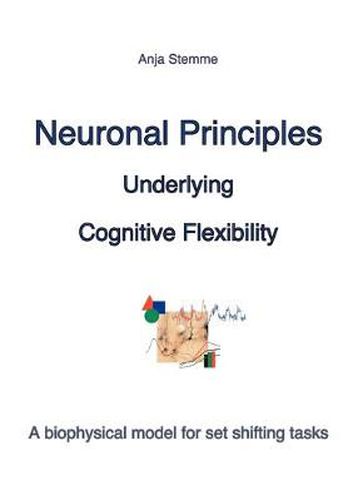Readings Newsletter
Become a Readings Member to make your shopping experience even easier.
Sign in or sign up for free!
You’re not far away from qualifying for FREE standard shipping within Australia
You’ve qualified for FREE standard shipping within Australia
The cart is loading…






This title is printed to order. This book may have been self-published. If so, we cannot guarantee the quality of the content. In the main most books will have gone through the editing process however some may not. We therefore suggest that you be aware of this before ordering this book. If in doubt check either the author or publisher’s details as we are unable to accept any returns unless they are faulty. Please contact us if you have any questions.
The ability of humans to adapt their behavior (sometimes rapidly) according to context requirements is referred to as cognitive flexibility. This flexibility is thought to be associated to a great extend with the prefrontal cortex and experimentally investigated using set shifting tasks as the Wisconsin Card Sorting Test for example. Several psychiatric and neurologic patient groups show an impaired performance in these tasks which allows to draw conclusions with respect to the neuronal base of cognitive flexibility. These are, amongst other data, usable for a neuronal modeling process. Thus, the work describes the design of a biophysical detailed neuronal model for the simulation of set shifting tasks which enables the comparison with available neuroimaging data and permits an extensive simulation of human behavior in an example experiment. Thereby a new concept behind set shifting and hence behind cognitive flexibility is illustrated which demonstrates as well the high potential of a close interaction between biophysically detailed neuronal models, computational simulations and (psychologic) experimental investigations.
$9.00 standard shipping within Australia
FREE standard shipping within Australia for orders over $100.00
Express & International shipping calculated at checkout
This title is printed to order. This book may have been self-published. If so, we cannot guarantee the quality of the content. In the main most books will have gone through the editing process however some may not. We therefore suggest that you be aware of this before ordering this book. If in doubt check either the author or publisher’s details as we are unable to accept any returns unless they are faulty. Please contact us if you have any questions.
The ability of humans to adapt their behavior (sometimes rapidly) according to context requirements is referred to as cognitive flexibility. This flexibility is thought to be associated to a great extend with the prefrontal cortex and experimentally investigated using set shifting tasks as the Wisconsin Card Sorting Test for example. Several psychiatric and neurologic patient groups show an impaired performance in these tasks which allows to draw conclusions with respect to the neuronal base of cognitive flexibility. These are, amongst other data, usable for a neuronal modeling process. Thus, the work describes the design of a biophysical detailed neuronal model for the simulation of set shifting tasks which enables the comparison with available neuroimaging data and permits an extensive simulation of human behavior in an example experiment. Thereby a new concept behind set shifting and hence behind cognitive flexibility is illustrated which demonstrates as well the high potential of a close interaction between biophysically detailed neuronal models, computational simulations and (psychologic) experimental investigations.